ROUTE OF THE MAYA
November 9 - 26, 2010
Page Two
El Salvador continued
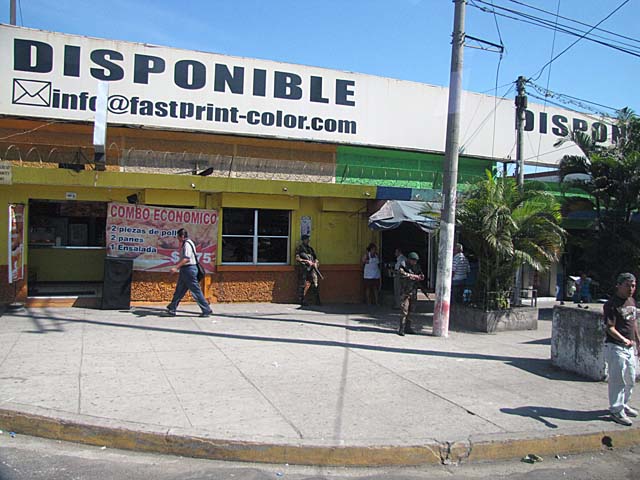
El Salvador is heavily armed and most businesses and stores seem to have armed guards, as can be seen here.
One of their purposes is to protect businesses from extortion. Also note the barbed wire around the shop to prevent theft.
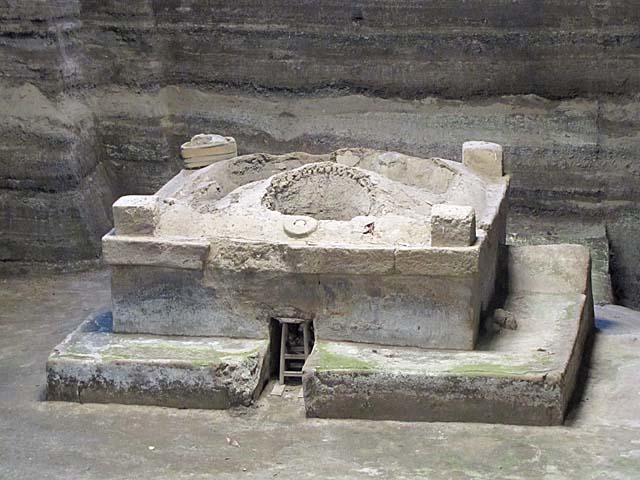
Sweatbath at Joya de Ceren. Joya de Ceren, near San Salvador, is the only known site where ordinary Maya
houses have been preserved. It is thought this sauna was used for both physical and spiritual cleansing.
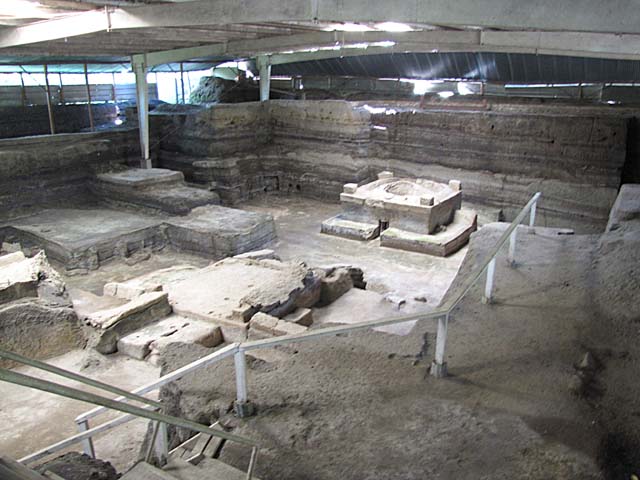
All the structures at Joya de Ceren are covered with protective roofing. Between 400 and 500 AD, a huge
explosion
from a volcano caused a mass migration from this area, after which it was repopulated around 600 AD.
Around the
9th century AD, a local volcanic eruption forced people in Ceren to flee. Within days, the entire
area was buried
in volcanic ash. It remained buried for 1400 years until 1976 when a bulldozer involved in
a construction project
uncovered part of a structure. Payson Sheets, a University of Colorado anthropologist,
carried out excavations
in 1978 and 1980, which were interrupted by the civil war. He resumed excavations
in 1988 and continues
to this day. 10 to 12 structures were excavated, including living quarters, storehouses,
workshops,
kitchens, a communal
sauna, and a religious structure. It is estimated Ceren was home to about 200
people. The buildings are grouped into
compounds that include structures for sleeping, storage, cooking, and
handicrafts.
The inhabitants were farmers.
Corn was grown in furrows.
The ash the community was buried under
preserved its personal belongings,
essentially freezing the agricultural village
in time. Structures were made of
wood,
wattle and daub
(where walls are made of a woven lattice of wood strips
daubed with a sticky
material made of soil,
clay, animal dung, etc.
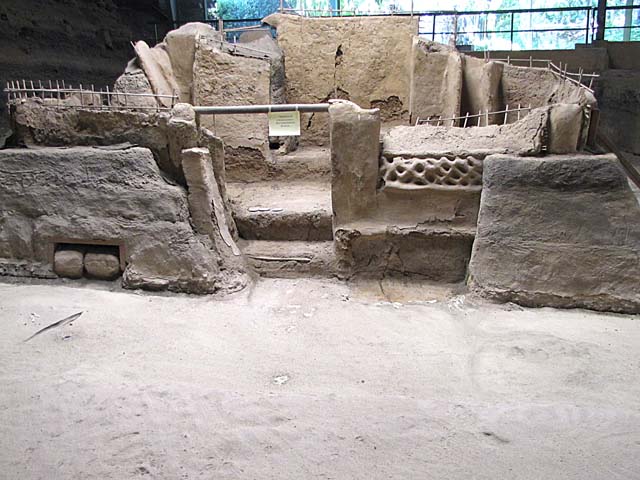
It is believed that a shaman practiced here. Mayans believed a shaman is able to bridge into the other world
and bring forth the magic power of that world. Shamans still perform ceremonies as a plea for assistance
from that supernatural world.
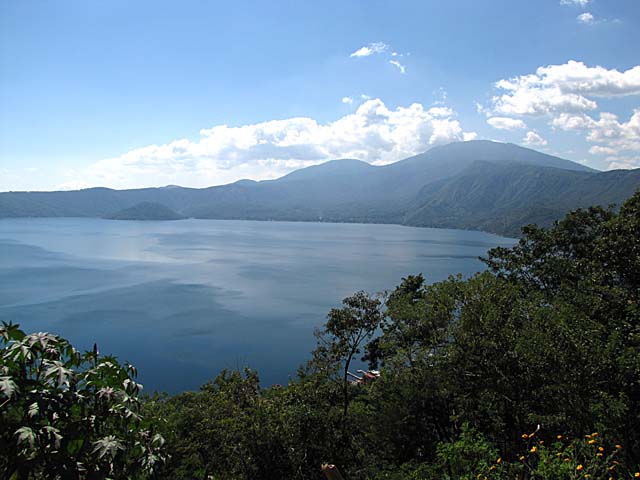
We ate lunch at Lake Coatepeque with a large volcano above it. The homes along the shore are mostly
vacation homes for affluent El Salvadorans.
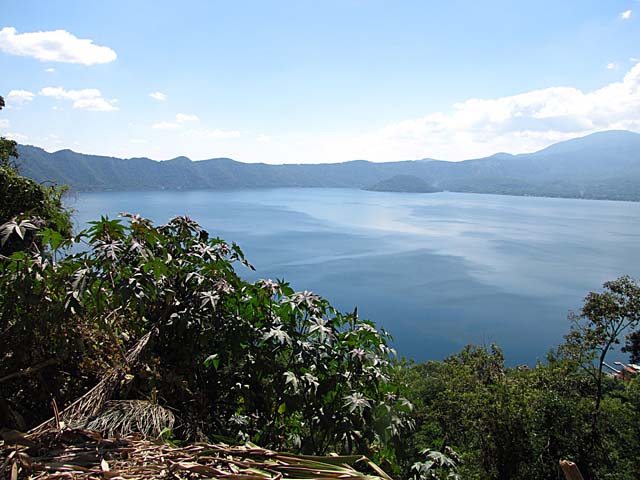
Another view of Lake Coatepeque, a volcanic crater lake.
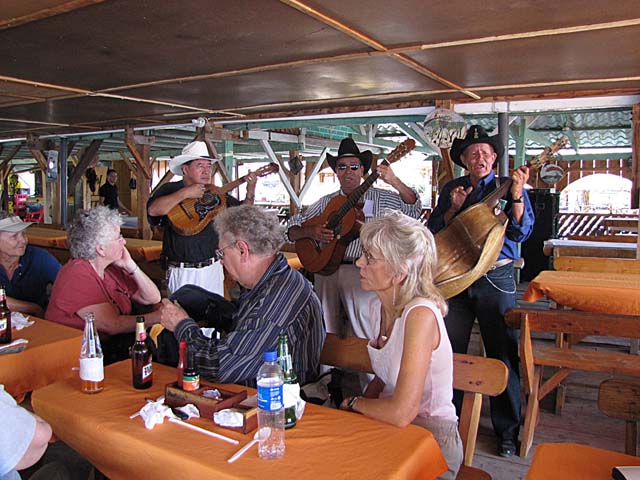
Lunch was at Rancho Alegre Restaurant along the lake. I had fish caught from the lake. A mariachi band
serenaded us.
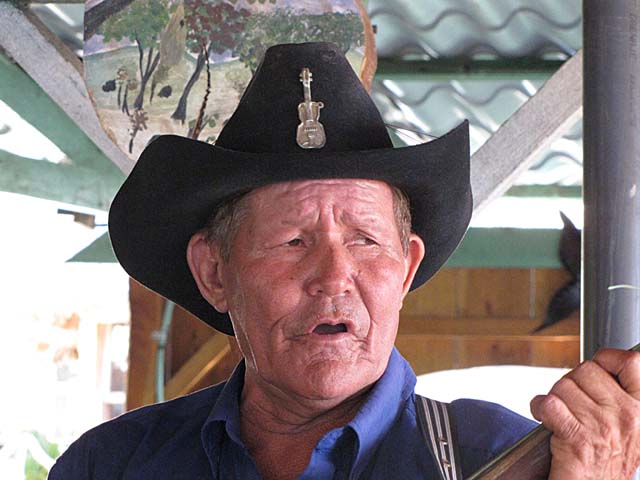
Closeup of one of the musicians.
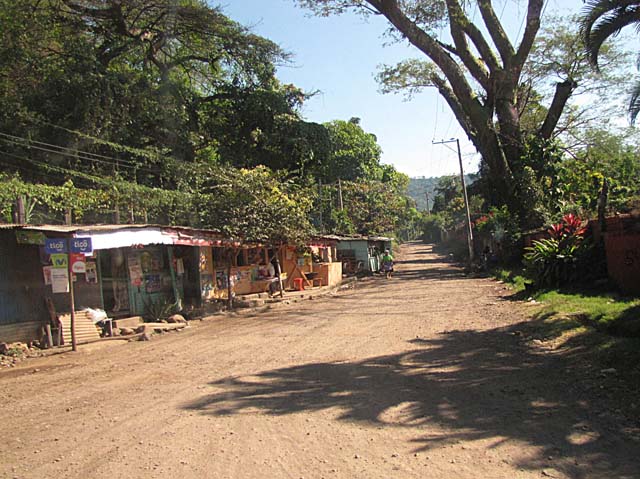
A typical dirt road near the Lake with vendors lined up alongside it.
Link to Page 3 - Honduras
Link to Page One of Route of the Maya
Pat's Home Page